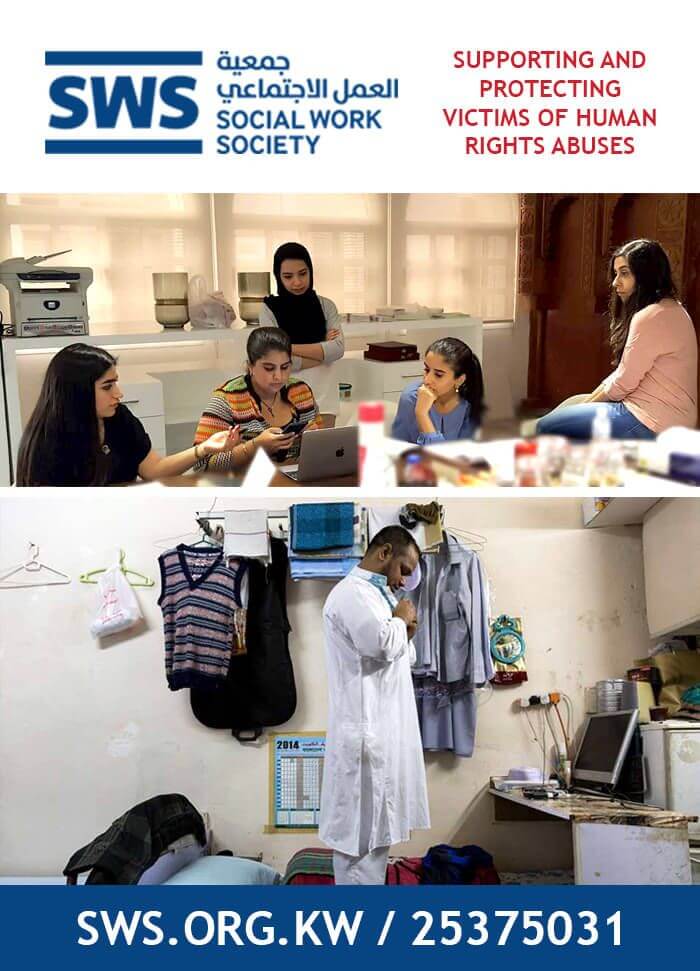UN Security Council resolution condemns starving of civilians
International Published on: 25 May, 2018 @ 2:14 AM
Co-sponsored by Kuwait, the Netherlands, Sweden and Cote d'Ivoire, a resolution was unanimously passed by the UN Security Council on Thursday to strongly condemn the starving of civilians and the unlawfully denying of humanitarian access to civilian populations as warfare tactics.
The Resolution 2417 (2018), which is in consistency with the humanitarian diplomacy of Kuwait, was welcomed by the Council members as a landmark expression of unity on those critical issues.
The Council drew attention to the link between armed conflict and conflict induced food insecurity and the threat of famine.
It called on all parties to armed conflict to comply with their obligations under international humanitarian law regarding the protection of civilians and on taking care to spare civilian objects, stressing that armed conflicts, violations of international law and related food insecurity could be drivers of forced displacement.
Underlining the importance of safe and unimpeded access of humanitarian personnel to civilians in armed conflicts, it also strongly condemned the unlawful denial of such access and depriving civilians of objects indispensable to their survival - including willfully impeding relief supply and access for responses to conflict induced food insecurity.
Urging those with influence over parties to conflict to remind the latter of their international obligations, the Council also recalled that it could consider adopting sanctions, where appropriate and in line with existing practices, that would apply to individuals or entities obstructing the delivery or distribution of humanitarian assistance to civilians in need.
The resolution reads, in part and in effect, as follows: "Recalling all relevant Security Council resolutions, including resolutions 1296 (2000), 1894 (2009), 2175 (2014) and 2286 (2016) and its presidential statement of 9 August 2017 (S/PRST/2017/14), -- The Security Council, first, recalls the link between armed conflict and violence and conflict induced food insecurity and the threat of famine, and calls on all parties to armed conflict to comply with their obligations under international humanitarian law regarding respecting and protecting civilians and taking constant care to spare civilian objects, including objects necessary for food production and distribution such as farms, markets, water systems, mills, food processing and storage sites, and hubs and means for food transportation, and refraining from attacking, destroying, removing or rendering useless objects that are indispensable to the survival of the civilian population, such as foodstuffs, crops, livestock, agricultural assets, drinking water installations and supplies, and irrigation works, and respecting and protecting humanitarian personnel and consignments used for humanitarian relief operations;
Second, stresses in this regard that armed conflict, violations of international humanitarian law and international human rights law, and food insecurity can be drivers of forced displacement, and, conversely, forced displacement in countries in armed conflict can have a devastating impact on agricultural production and livelihoods, recalls the relevant prohibition on the forced displacement of civilians in armed conflict, and stresses the importance of fully complying with international humanitarian law and other applicable international law in this context;
Third, stresses the need for humanitarian assistance to be gender- and age sensitive, and to remain responsive to the different needs of the population, ensuring that these needs are integrated in the humanitarian response;
Fourth, calls on all parties to armed conflict to comply with their obligations under international humanitarian law, and underlines the importance of safe and unimpeded access of humanitarian personnel to civilians in armed conflicts, calls upon all parties concerned, including neighbouring States, to cooperate fully with the United Nations Humanitarian Coordinator and United Nations agencies in providing such access, invites States and the Secretary General to bring to its attention information regarding the unlawful denial of such access in violation of international law, where such denial may constitute a threat to international peace and security, and, in this regard, expresses its willingness to consider such information and, when necessary, to adopt appropriate steps;
Fifth, strongly condemns the use of starvation of civilians as a method of warfare in a number of conflict situations and prohibited by international humanitarian law;
Sixth, strongly condemns the unlawful denial of humanitarian access and depriving civilians of objects indispensable to their survival, including willfully impeding relief supply and access for responses to conflict induced food insecurity in situations of armed conflict, which may constitute a violation of international humanitarian law;
Seventh, urges all parties to protect civilian infrastructure which is critical to the delivery of humanitarian aid and to ensure the proper functioning of food systems and markets in situations of armed conflict;
Eighth, urges those with influence over parties to armed conflict to remind the latter of their obligation to comply with international humanitarian law;
Ninth, recalls that the Council has adopted and can consider to adopt sanction measures, where appropriate and in line with existing practice, that can be applied to individuals or entities obstructing the delivery of humanitarian assistance, or access to, or distribution of, humanitarian assistance;
Tenth, strongly urges States to conduct, in an independent manner, full, prompt, impartial and effective investigations within their jurisdiction into violations of international humanitarian law related to the use of starvation of civilians as a method of warfare, including the unlawful denial of humanitarian assistance to the civilian population in armed conflict, and, where appropriate, to take action against those responsible in accordance with domestic and international law, with a view to reinforcing preventive measures, ensuring accountability and addressing the grievances of victims.
The Council requests the Secretary General to continue to provide information on the humanitarian situation and response, including on the risk of famine and food insecurity in countries with armed conflict, as part of his regular reporting on country specific situations.
News Source: KUNA
Like









Be the first to post a comment!